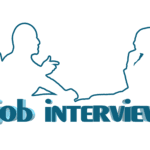Introduction
The U.S. is a land of opportunity, and it’s also home to over 300 million people. And with so many people living in the U.S., there are plenty of opportunities for foreign nationals to work here too! However, there are some limitations on how long you can stay in the U.S., what types of jobs you can do while you’re here (and where), and what type of visa you need before arriving at the airport or border crossing.
For example: if your job is seasonal, then maybe an H1B visa isn’t right for you because it allows only three years of total time spent working in America before being sent home again. If your profession requires special training before entering into practice, then an O-1 may be more appropriate than an L-2 blanket registration/visa which requires only one year’s experience under your belt before applying.
C-1/D Visa (Combined Transit and Crewman)
The C-1/D visa is a nonimmigrant visa that allows foreign nationals to enter the United States for the purpose of engaging in certain activities. The C-1 visa category includes crew members and flight attendants who are traveling to the United States to become members of a crew on a vessel or aircraft or engage in international transportation between the United States and Canada, Mexico, and adjacent islands. The D visa category applies to “dual intent” professionals (e.g. athletes, artists) who are coming temporarily into the U.S. for performances, lectures, and competitions under an exchange program with an American organization sponsoring their visit; journalists from foreign media organizations entering temporarily as tourists or business visitors; or those participating in religious activities under the sponsorship of an affiliated entity involved in such work.
The following information applies only if: you plan on applying for both a C-1/D Visa and another type of U.S. work authorization at the same time (such as H2B) or if your employer needs both types of visas before they can start working here permanently
E-Registration / Visa (Treaty Trader / Treaty Investor)
If you are a national of a country with which the United States has a treaty of commerce and navigation and wish to start a business in the U.S., you may be eligible for an E-2 visa. You must show that:
- You will not be working for your own benefit or that of any other person except your employer, who is also required to be an investor;
- Your investment is substantial;
- The proposed activity will provide benefits to U.S. workers and consumers; and
- There are no adverse effects on labor conditions within the country, region or industry concerned (e.g., increased unemployment).
E-1 Visa (Treaty Trader)
The E-1 visa is a nonimmigrant working visa that enables nationals from certain countries to conduct trade, commerce and business in the United States.
Step 1: Confirm eligibility for the E-1 Treaty Trader Visa by contacting a lawyer who specializes in immigration law.
Step 2: Prepare all necessary documents for submission to the U.S. Consulate, including legal documents showing your company’s incorporation.
E-2 Visa (Treaty Investor)
The E-2 Visa is available to nationals of countries that have treaties of commerce and navigation with the United States. The E-2 visa allows a foreign national to enter the country as an employee or sole proprietor of a business in the United States.
To qualify for an E-2 visa, you must be investing substantial capital in a U.S.-based business that does not compete with any American businesses, and you must own at least 50% of this company. Your company can only hire employees from your home country, but there are no restrictions on how much money you make from their labor or how many hours they work per week or year; however, if you want to change your status from “exempt” (working without authorization) without leaving the country first then there are certain requirements that must be met before doing so:
- You must notify USCIS in writing (and electronically) 30 days before changing any information on your I-94 Arrival/Departure Record form at www.uscisgov/i94
- If working under false pretenses then penalties may apply – see below!
H-1B visa (Specialty Occupation Workers)
First, let’s define what a specialty occupation is. A “specialty occupation” is an occupation that requires specialized education or training and/or work experience and for which there is a need for such persons to enter the country to perform services in such occupations. The H-1B visa program allows U.S. employers to hire foreign nationals to fill these positions where they are unable to find qualified Americans or permanent residents to fill them.
There are several different types of H-1B visas:
- H-1B specialty workers (this article)
- H-1B temporary workers who have been counted against a cap
- E-3 Australian nationals (E3 treaty trader)
In order to qualify as an H-1B specialty worker, you must meet all three requirements: 1) your core duties involve work in a specialized field; 2) your employer has applied for a Labor Condition Application (LCA); and 3) you possess at least a bachelor’s degree or equivalent education from an accredited institution in your home country or area of residence (including Puerto Rico).
I-Visa (Foreign News Media)
The I Visa category is for foreign nationals who are “bona fide” journalists, media correspondents and their support staff. The U.S. Department of State has designated the following categories as “bona fide”:
- News Analyst
- News Correspondent
- Technical Writer or Editor
- Photographer
L-1 Visa (Intracompany Transferee)
An L-1 visa is a nonimmigrant visa that allows U.S. companies to transfer foreign workers to the United States for a temporary period of time. The L-1A category covers employees who are executives or managers, and the L-1B category covers employees with specialized knowledge in their field. An employer may request an initial three-year period of stay and can extend this by another two years if the employee has proven successful at his/her job and there are no other qualified candidates available in the U.S..
L-1 visas are processed through USCIS (United States Citizenship and Immigration Services).
L-1 Blanket Registration / Visa
L-1 Blanket Registration / Visa
The L-1 Blanket Registration is a nonimmigrant visa that allows multinational companies to transfer foreign workers to the United States. The blanket registration is not limited by country, occupation or industry and may be used for an unlimited number of employees. Under this category, an employer can enter into L-1A or L-1B status with DHS for its officers/executives (L-1A) or specialized knowledge employees (L-1B).
O-1 Visa (Extraordinary Ability)
You can apply for a U.S. O-1 visa if you are an individual who possesses extraordinary ability in the sciences, arts, education, business or athletics and has achieved national or international recognition for these achievements. You must be able to demonstrate that you have been recognized nationally or internationally as being outstanding in your field through extensive documentation of your accomplishments.
To qualify for an O-1 visa, you must possess extraordinary ability in the sciences, arts, education, business or athletics. Extraordinary ability means a level of expertise indicating that you are one of the small percentages who have risen to the very top of their field of endeavor and are among those at the forefront internationally in their discipline.
TN Visa (Treaty NAFTA)
TN visas are available to citizens of Canada and Mexico who are employed in certain professional occupations. TN visas are not available for all professions; the Department of Homeland Security (DHS) has a list of eligible positions on its website. One requirement for applying for a TN is that the applicant must be paid at least the prevailing wage, which is published by the DHS on an annual basis. The application process includes an interview with an immigration officer at a U.S. embassy or consulate outside the United States, unless you’re already in this country as a visitor or tourist, in which case you can apply through your local USCIS office (immigration).
Conclusion
There are many U.S. work visas to choose from, but the most common ones relate to the type of job you have and where it’s located. If your company is based in the U.S., you may need to recruit foreign employees on an L-1 visa or H-1B visa. If you want to travel or live in another country while earning money or receiving training, an F-1 or J-1 visa could be right for you!
Take some time to think about what kind of work experience will help advance your career goals before contacting an immigration attorney about applying for a specific type of visa. They can also help ensure that everything gets done correctly so there are no surprises when submitting paperwork at any point during the entire process!










